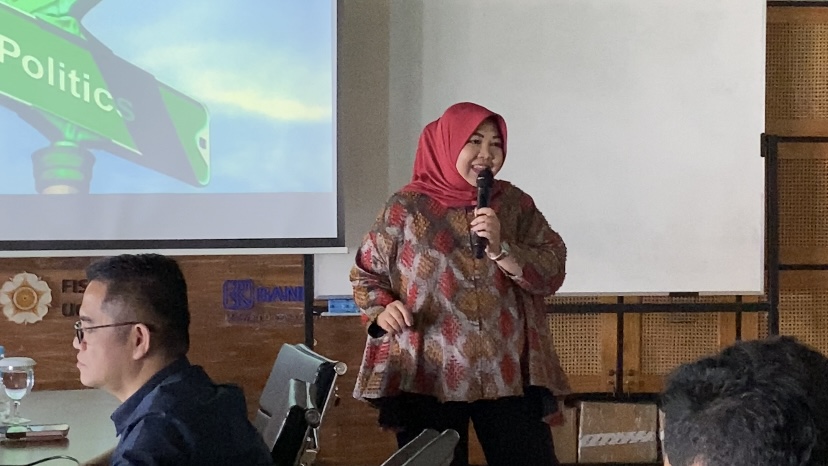
Research Center for Politics and Government (PolGov), Department of Politics and Government, Faculty of Social and Political Sciences (FISIPOL) Universitas Gadjah Mada, in collaboration with Westminster Foundation for Democracy (WFD) Indonesia held a national conference “Job Creation Legislation: Initiating Solutions to Legal Problems and Potential Impacts of Implementing the Law. The seminar, which consisted of two sessions, was held by hybrid method. There are offline that taking place at the Auditorium of FISIPOL UGM and online that taking place via Zoom.
In general, this discussion tries to look at Job Creation Law the legislative process, include potential and impact of its implementation within the Post-Legislative Scrutiny (PLS) framework. Hosted by Hasrul Hanif, a lecturer at the Department of Politics and Government, the first session focused on the legislative process of Law No. 11 of 2020 aboud Job Creation. In this session, Inosentius Samsul, Head of the Expertise Body for the Indonesian People’s Representative Council, Mahaarum Kusuma Pertiwi, lecturer at the Faculty of Law UGM, and Purwo Santoso, lecturer at the Department of Politics and Government, explained about the politics and legal consequences of Job Creation Law.
The second session was hosted by Arie Ruhyanto with three main speakers are Ali Khanif, Executive Director of Center of Human Rights, Multiculturalism, and Migration, Faculty of Law, UGM, Wahyu Yun Santoso, the lecturer of Faculty of Law, UGM, and Amalinda Savirani, the lecturer of Department of Politics and Government. Second session was highlighted the potential and impact of the Job Creation Law from environmental and labor aspects in Indonesia. Ali and Wahyu frame the Job Creation Law in environmental aspects which can provide investment maturity due to ease of bureaucracy. However, at the same time, this condition could can become boomerang because it can increasingly disenfranchise vulnerable groups, create a legal vacuum, and undermine public participation in environmental governance.
Meanwhile, Amalinda explained the impact and potential of the Job Creation Law on the welfare of workers in Indonesia. Amalinda also highlighted the ability of PLS to carry out the monitoring role of the Job Creation Law and its limitations. To work around this, Amalinda emphasize about meaningful participation in society through the PLS framework.
On this occasion, Franklin De Vrieze, Head of the WFD Accountability Practice, explained the role of PLS for democratic process which emphasizes the assessment and evaluation of a legal product. He said it will have an impact on the sustainability of the community structure. In the second session, Rafael Jimenez-Aybar, WFD Environmental Democracy Advisor, explained on global climate action and Indonesia’s commitment to the Paris Agreement, which relates to national laws and multicultural frameworks.




